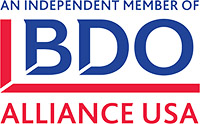
Illinois on August 27, 2021 enacted S.B. 2531, which will allow pass-through entities (PTEs) to elect to be taxed at the entity level, in an effort to help individual residents mitigate the impacts of the federal $10,000 cap on state and local tax (SALT) deductions. Illinois joins 17 other states in enacting similar entity-level tax legislation for PTEs and is one of 11 states that offer the election in a form of a credit for income taxes paid (other states that have enacted a PTE election instead reduce the owners’ adjusted gross income by their distributive income).
Impact on PTEs Making the Election
Effective for tax years ending on or after December 31, 2021 and beginning before January 1, 2026, partnerships (excluding publicly traded partnerships) and S corporations can make a separate irrevocable election to pay entity-level taxes in Illinois each year. Should the federal SALT deduction limitation be repealed before the end of 2025, when it is currently scheduled to sunset, then the Illinois PTE election provision will not apply. The new law does not specify how or when to make the election; however, it does provide the department with the authority to prescribe the manner in which the election is made.
The Illinois PTE tax is at a rate of 4.95% on the PTE’s “net income,” which is defined as the PTE’s apportioned net income in Illinois for the tax year. The new law specifies that the following four provisions do not apply to the definition of “net income” for electing PTEs:
- The standard deduction;
- The deduction for net losses;
- For both S corporations and partnerships, the modification related to distributable income to shareholders or partners subject to Illinois personal property replacement tax;
- For partnerships, the modification related to personal service income or reasonable compensation.
Illinois’ new law specifically addresses tiered partnerships. An upper tier partnership making the election in Illinois will subtract its distributive share of the net income of the lower tier electing partnership.
An electing PTE is required to make estimated tax payments if the amount of estimated tax payable can reasonably be expected to exceed $500.
Finally, electing PTEs are not required to withhold on behalf of nonresident owners in tax years in which the election is made.
Impact on Owners of Electing PTEs
Each partner or shareholder of an electing PTE is entitled to a refundable credit equal to 4.95% of their distributive share, but the credit cannot exceed the amount actually paid by the electing PTE. If the owner of the electing PTE is itself another partnership or S corporation, then the credit passes to its partners or shareholders.
Importantly, the new law allows Illinois individual residents to take a credit for tax paid by the PTE in another state if the tax paid is “substantially similar” to Illinois’s new PTE elective tax regime. The legislation does not define what is considered “substantially similar.” However, it does allow the Department of Revenue to make that determination.
Nonresident individuals are not required to file a return if the nonresident individual’s only source of net income is from an electing PTE and the credit allowed to the nonresident individual is sufficient to cover their Illinois individual income tax liability.
Insights
- Additional clarifications from the Illinois Department of Revenue should be forthcoming regarding the manner and timing in which an election is made, the process for making estimated tax payments, potential relief from underpayment penalties for the 2021 tax period and other guidance regarding the PTE election.
- While the PTE tax election could be beneficial to many Illinois resident pass-through taxpayers, a full analysis of the impact of making the PTE election, particularly the impact to non-resident owners, should be performed by each PTE before making the election.




